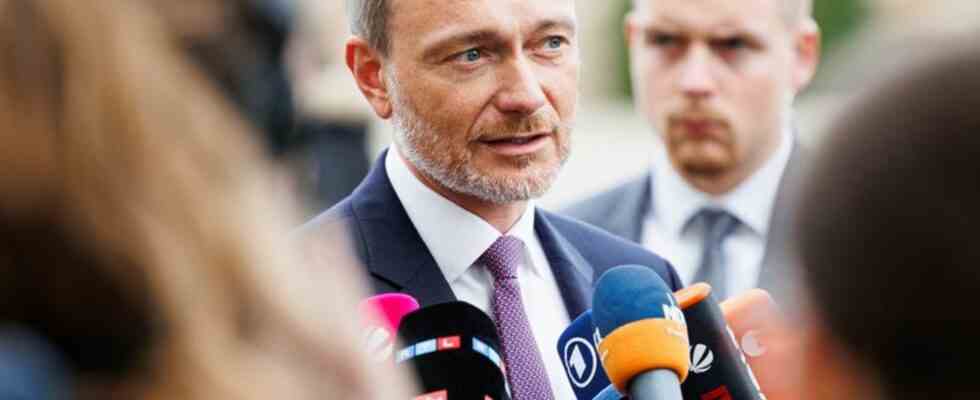household
Autumn tax estimate: Lindner can expect additional income
Federal Finance Minister Christian Lindner (FDP) speaks to media representatives in Hanover. photo
© Michael Matthey/dpa
All economic forecasts paint a bleak picture for Germany. But there is probably good news for Finance Minister Lindner: he could get a little more leeway for his budget.
Finance Minister Christian Lindner (FDP) could have more money in the till in the coming year than expected. Today the Working Group of Tax Estimators presents its forecast for the years up to 2026. Despite the forecast economic downturn, significant additional income is expected for the federal, state and local governments.
Among other things, the state benefits from high inflation: if goods become more expensive, the income from the taxes that have to be paid on them also increases. Above all, the value added tax flushes more money into the coffers.
In the first nine months of 2022, tax revenue flowed surprisingly well. From January to September, around ten percent more taxes came in than in the same period last year – again mainly due to value added tax.
Economy likely to shrink 0.4 percent
For the coming year, the federal government expects economic output to shrink by 0.4 percent due to the energy crisis. The high prices, especially for gas, are a burden for many companies and, according to forecasts, will slow down industrial production. At the same time, it is expected that many citizens will restrict themselves and reduce their private consumption.
The Ministry of Economic Affairs already sees signs of a clear recovery for 2024. An increase in economic output of 2.3 percent is predicted. However, the situation is volatile – both the development of the Russian war of aggression against Ukraine and that of the corona pandemic are difficult to predict.
Stefan Körzell, board member of the German Trade Union Confederation (DGB), demanded that the additional revenue from taxes should therefore be used primarily to cushion the consequences of the crisis for people on low incomes, students and pensioners.
Demand for socio-ecological transformation
In addition, investments must be made in an independent supply of renewable energies, in education, health and in socio-ecological transformation. To do this, however, the state must put its finances on a more stable footing in the long term. The DGB is therefore calling for a wealth tax and fewer exemptions for rich corporate heirs from inheritance tax.
The tax assessment working group meets twice a year, in spring and autumn. The committee consists of experts from the Federal Government, the leading economic research institutes, the Federal Statistical Office, the Bundesbank, the Council of Experts for the Assessment of Macroeconomic Development in Germany as well as representatives of the state finance ministries and the municipalities.

